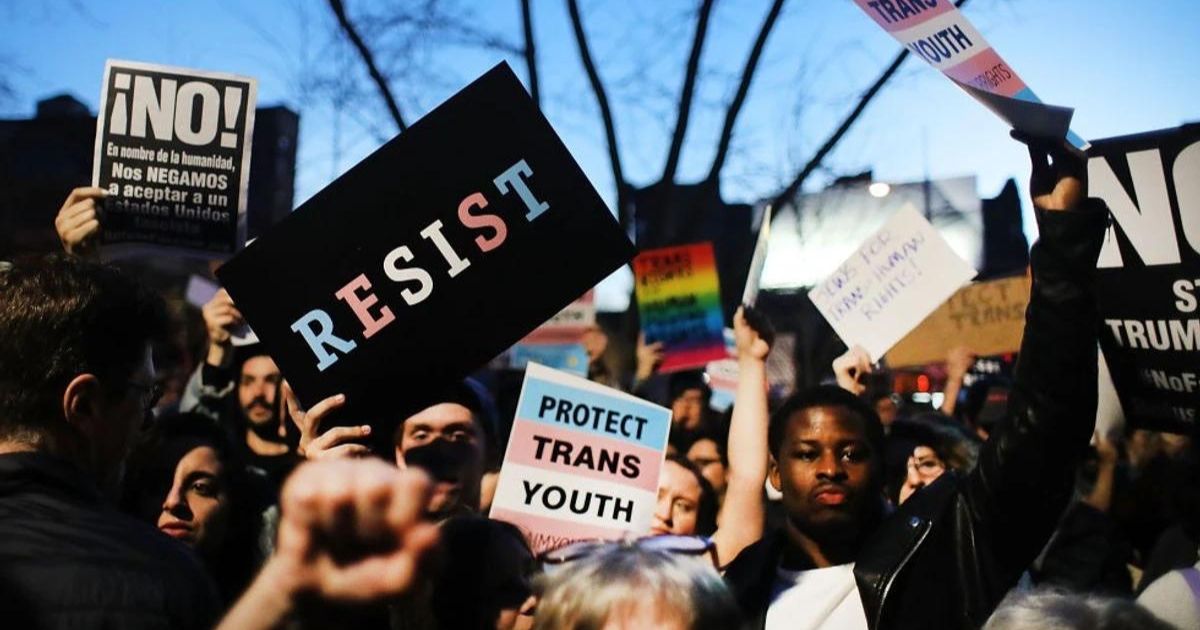Missouri Trans Snitch Form -Dividing Rights and Opinions
In recent months, the state of Missouri has found itself at the centre of a heated debate over a controversial measure informally referred to as the “trans snitch form.” This form, officially known as the “Missouri Child Protection Reporting Form,” has ignited fierce discussions about privacy, parental rights, and the treatment of transgender individuals, especially minors, within the state.

What is the Missouri Trans Snitch Form?
The “trans snitch form” is a paper from the Missouri government. It lets people tell the government if they think kids are getting help to match their gender. This help might be talking to someone, taking special medicine called hormones, or sometimes even having an operation to look more like their gender.
The form is intended to enforce Missouri’s recent legislation that restricts access to gender-affirming care for minors. The law mandates that such care can only be provided under stringent conditions and requires detailed reporting and oversight. This measure is part of a broader trend seen in several states across the U.S., where laws regulating gender-affirming care for minors have become a significant flashpoint.
The Political and Social Context:
Some support laws safeguarding children from irreversible medical treatments, believing they lack understanding to choose gender identity. Opponents view such laws as intrusive, risking stigmatization and discrimination against transgender individuals. They argue for gender-affirming care, backed by medical professionals, as vital for the well-being of transgender youth.
The Impact on the Transgender Community:
For transgender people in Missouri, the “trans snitch form” has made them feel scared and unsure. They worry that they might be reported, watched closely, and punished for seeking care they need for their health and happiness. This has also made healthcare providers nervous about giving gender-affirming treatments because they’re afraid of getting in trouble with the law.
Transgender support groups say the form makes things even harder for transgender people. They say it makes them feel more left out and treated unfairly. These groups think it’s really important for transgender young people to have supportive and kind environments, and they worry that forms like this will make them feel even more alone.
Legal Challenges and Public Response:
The implementation of the “trans snitch form” has not gone unchallenged. Legal battles are underway, with advocacy groups and affected families filing lawsuits arguing that the form and the underlying legislation violate constitutional rights to privacy and equal protection. These legal proceedings are expected to be protracted, reflecting the profoundly polarized views on this issue.
Public reaction is split. Some people support the measure to protect children, while others protest and campaign to overturn the law. The issue has gained national attention, adding to the wider debate on transgender rights and state involvement in personal medical decisions.
Also Read: Twitch Topless Streamer – Expression vs. Community Standards
FAQs:
Why was the form created?
The form was created to enforce recent legislation in Missouri that restricts access to gender-affirming care for minors to protect children from what some believe are potentially harmful and irreversible medical procedures.
Who can use the form to make a report?
Any citizen of Missouri can use the form to report instances of minors receiving gender-affirming care.
What types of care are considered reportable under this form?
Reportable care includes any gender-affirming services such as psychological counselling, hormone therapy, and gender-affirming surgeries.
What happens after a report is made?
After a report is made, state authorities review it and may investigate the situation further. This could lead to legal actions against healthcare providers, parents, or guardians involved in the provision of gender-affirming care.
What are the arguments in favour of the form?
Supporters argue that the form helps protect minors from making irreversible medical decisions that they might later regret. They believe strict oversight is necessary to ensure the well-being of young people.
What are the arguments against the form?
Opponents argue that the form invades privacy, stigmatizes transgender individuals, and discourages families and healthcare providers from seeking or offering necessary care. They also believe it can lead to discrimination and harassment.
How has the transgender community responded to the form?
The transgender community in Missouri has expressed fear and uncertainty, concerned about being reported and scrutinized for seeking necessary care. Advocacy groups argue that the form exacerbates marginalization and discrimination.
Are there any legal challenges to the form?
Yes, there are ongoing legal challenges. Advocacy groups and affected families have filed lawsuits claiming that the form and the underlying legislation violate constitutional rights to privacy and equal protection.
How has the public reacted to the form?
People have different opinions about the form. Some think it protects children, while others are against it and want it removed because they see it as a violation of personal rights and medical freedom.
Conclusion:
The “trans snitch form” in Missouri is a major and controversial topic in the fight over transgender rights in the U.S. It highlights the clash between people who want to protect children and those who support the right to gender-affirming care. With legal battles and divided public opinion, this issue will significantly affect transgender rights and healthcare in Missouri and beyond.


